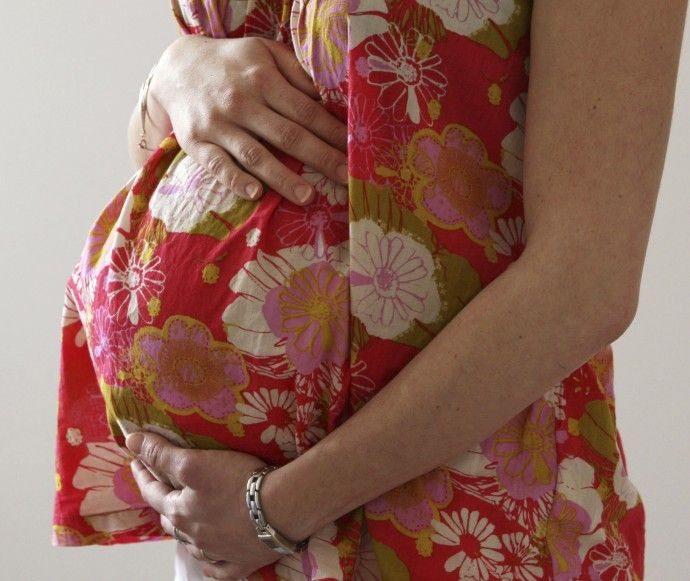In Multiple States, Pregnant Undocumented Workers Forced to Give Birth While Shackled in Police Custody

An Alabama judge upheld a majority of the provisions in the state's controversial immigration law this week, which is widely considered to be the toughest law aimed at illegal aliens in the U.S. Similar laws -- many of which, like Alabama's, allows police to detain suspected illegal immigrants without bond -- have been suggested by a handful of other state legislatures this year, a trend that may lead to a frightening crackdown on some of the nation's estimated 11.2 million undocumented workers.
The dehumanizing qualities of our nation's immigration policies can be seen through its treatment of several pregnant women -- more specifically, undocumented workers who were forced to give birth while removed from their spouses and shackled to hospital beds, according to an investigation by The Huffington Post.
Although shackling during childbirth is against U.S. Immigration and Customs Enforcement (ICE) policy and is illegal in 14 states, women detained for immigration-related offenses categorized criminal offenses can still legally be handcuffed to hospital beds by state authorities in 36 states.
In addition, these women can also legally be denied the right to have a family member or spouse in the birthing room or care for their newborn infants for longer than 24 hours.
Miriam Mendiola-Martinez, an undocumented worker who was charged with using someone else's identity in order to find work, was detained in Arizona's Maricopa County Jail and told New American Media during a January 2010 interview that she was shackled during the last two months of her pregnancy, as well as before and after giving birth to her son on Dec. 21, 2009.
I could barely walk, I don't think I could have escaped or even dared to run. I don't think there was a need for them to do that, Mendiola-Martinez.told the source.
Mother Not Allowed to Nurse Child
She said that after she gave birth to her son she was shackled to her bed for two days and was not allowed to nurse her child. When the guards walked her out of the hospitals, still restrained, two days later, she had no idea of what had been done with her newborn.
Similar reports have emerged from Arizona over the years. In October 2008 another undocumented woman, Alma Chacon, was reportedly detained by authorities while she was nine months pregnant and was forced to give birth while restrained to a hospital bed. Chacon said she was not allowed to hold or her nurse her baby until she was released from immigration custody almost 70 days later.
In November 2006, Arizona voters approved a law that denies illegal aliens the right to post bail, a move aimed to keep those who had been charged with serious crimes from being released. Offenses such as possession of false documents, which undocumented workers often rely on in order to find employment, is considered a serious crime under the law.
Maricopa County Sheriff Joseph Arpaio -- whom was targeted by President Obama for his harsh immigration practices during a roundtable discussion on Hispanic issues on Wednesday -- was investigated by the Justice Department's Civil Rights Division for allegedly discriminating in his enforcement of federal immigration laws. However, Arpaio still retains his post as sheriff.
Arizona isn't the only state where pregnant women are being shackled. In July 2008 Juana Villegas, an undocumented worker living in Tennessee, told a Nashville television station that she had been handcuffed to her hospital bed as she went into labor after being arrested for driving without a driver's license.
Although Nashville's News Channel 5 reported that Villegas was able to produce a valid vehicle registration and consulate photo ID when she was pulled over, she was detained under the state's 287-G program that allows law enforcement officials to flag offenders who are in the U.S. illegally.
When I was in bed, I was begging the sheriff, 'Please, let me free. At least one hand, because I wanted...' And he say, 'No.' He didn't want to, Villegas told the news station, adding that she had been shackled two hours prior to delivery and six hours after.
There is no federal law preventing law enforcement or immigration authorities from restraining inmates during childbirth. While the Bureau of Prisons reportedly instituted an anti-shackling policy in federal corrections facilities in 2007, state authorities still have the power to shackle prisoners before, during or after childbirth, according to The Rebecca Project For Human Rights' Anti-Shackling Coalition.
Last week, the advocacy group Breakthrough released a documentary called Checkpoint Nation? highlighting the experience of one woman who was reportedly mistreated by police, border patrol agents and medical professionals when she was detained and went into labor four years ago.
Malika Dutt, the founder and president of Breakthrough, told The Huffington Post that such tales are so horrifying that they would never usually be connected with the doings of American law enforcement officials.
We talk about cops in other parts of the world, and we say 'Oh, they don't respect human rights,' Dutt said. But where are we now? If something as important and sacred as someone giving birth can no longer be treated as human, where are we?
© Copyright IBTimes 2025. All rights reserved.





















